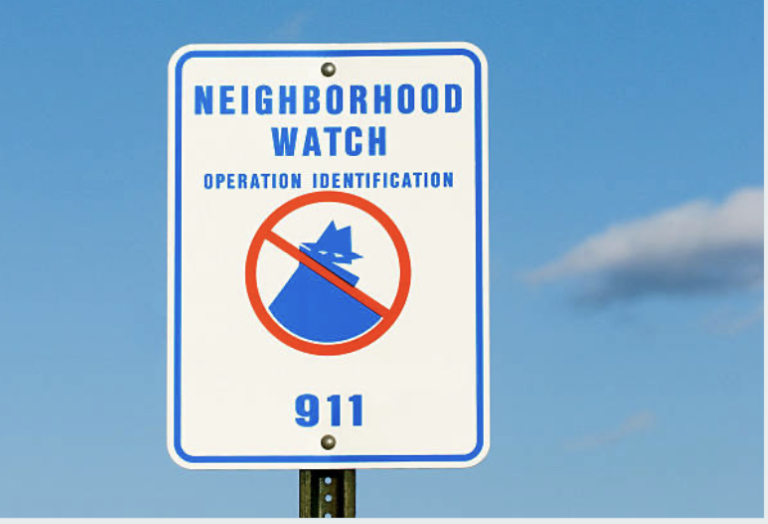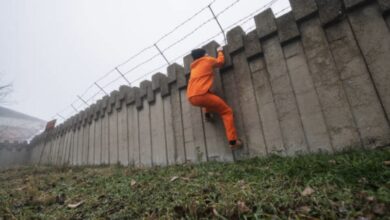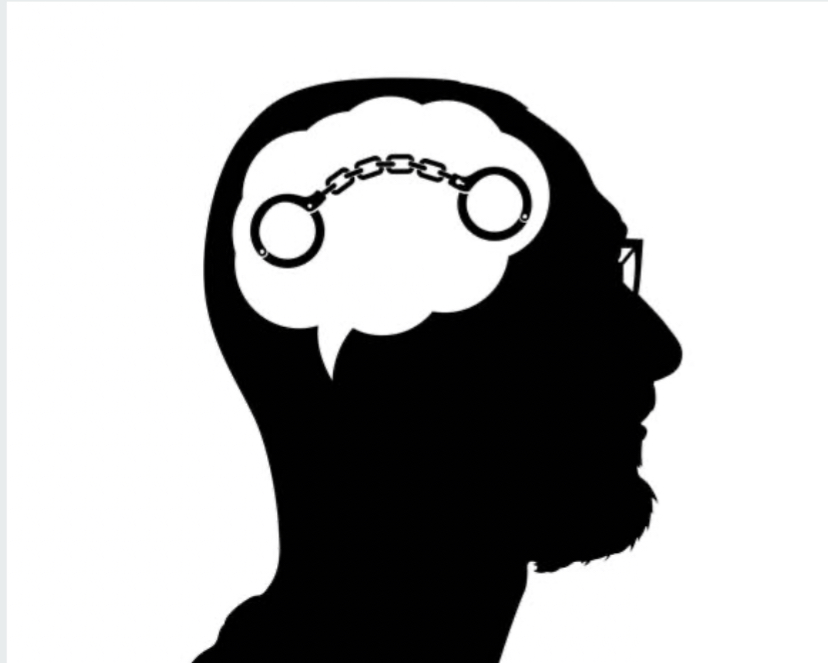The Impact of Poverty and Affluence on Crime


Introduction
Affluence and poverty within a society raise important social and economic issues. Poverty can lead to social disparities, limited access to education, higher crime rates, and a lack of upward mobility. It can also have negative effects on physical and mental health, as well as overall well-being. Affluence, while providing individuals with a higher quality of life, can also contribute to income inequality and social disparities. It can lead to a concentration of wealth and power in the hands of a few, creating a divide between the rich and the lower class. This article emphasizes the impact of poverty and affluence on crime.
Poverty
Penury is the mother of crime. Poverty has been defined as the lack of some fixed level of material goods necessary for survival and minimal well-being. It is measured by the quality and amount of food, clothing, and shelter deemed necessary for a healthy life, and usually involves a judgment of basic human needs, in terms of the resources required to maintain health and physical efficiency. Basic human needs could be both physical (nutrition, shelter, and health) and cultural (education, security, and leisure or recreation). The World Bank views the phenomenon as multidimensional and a situation in which people are unable to fulfill their basic human needs as well as lack control over resources. In addition, such people lack education and skills; experience poor health, malnutrition, and lack of shelter; have poor access to safe water and sanitation; and are vulnerable to shocks, violence, and crime.
Criminologists have emphasized how poverty could explain high crime rates. Early proponents of the causation of “poverty to crime” theory include Guerry and Quetelet in the early 1800s in France, who regarded poverty as absolute deprivation. The connection between crime and poverty is also popular among economists. Fajnzylber, et al, for example, while applying panel data for 45 developed and developing countries, found out that violent crime rates decline when economic growth improves. In a study carried out by researchers on imprisoned criminals, it was concluded that “the typical criminal is illiterate, unskilled, and unemployed”.
The researcher showed that between 86% and 89% of prisoners in the various prisons were unemployed at the time of their criminal offenses”. What this means is that poverty in terms of basic human needs alone does not explain much of the variance in criminal behavior. However, there are accompaniments of poverty each contributing its effect to criminal behavior, and such accompaniments of poverty include homelessness, overcrowding, lack of opportunity, and economic disposition. All these interact with other biological and/ or social factors to influence criminal behavior.
Affluence
Similar to the claim that poverty causes crime, affluence is said to cause crime. A lot of people place a high premium on economic affluence for everybody, even though the majority of people lack the basic educational and financial stand to succeed through legitimate means. Indeed the case is worsened by a cultural influence that emphasizes the extended family system in which the family pressure on the males of a community to succeed financially is very high. The more successful the individual becomes, the more respect and recognition he gets from societal members, although how the person “made it” is not subject to scrutiny. “Government officials,” loot the public treasury without the slightest pricking of conscience. In many instances, such looters are hailed as successful and honored with titles of dubious value.
Wealth is not only glorified, it is worshiped… whether the wealth is acquired through armed or unarmed robbery, or by some other criminal means is not important to society. What is important is to be rich.
In many parts of the world, money has become a god to be worshiped. In Africa to be precise, Honour and Chieftaincy titles are bestowed on known thieves by traditional rulers who ascended their thrones most questionably…As far as Africans are concerned, the majority do not care how a pauper suddenly becomes a millionaire. All we know is ‘he has made it’.
It may either be a remote or indirect cause or an immediate or direct cause of criminal behavior. Most property crimes, such as stealing or theft, burglary, and victimless crimes, such as prostitution, could be the consequence of poverty as a direct cause. However, violent crimes, such as murder, may be caused remotely by poverty. It must be noted therefore that poverty is only one factor in criminal behavior, and while it may be the cause of certain crimes, it is not likely the cause of others. It may also be a ‘specificity’ cause but not a ‘generality’ cause. What this means is that poverty may be a cause of a particular crime, at a particular time, in a particular place, but we cannot use one situation to generalize for all situations.
Inequality and poverty are very closely linked. For a given income, for example, the more unequal the income distribution, the larger the percentage of the population living on income. related poverty. The theory of inequality-crime nexus suggests that where the individual perceives the distribution of income to be inequitable, he may either resort to property crime as a method of addressing his or her grievances, or the situation may generate the feeling of frustration and anger, which in extreme cases could manifest in the form of violent criminal behavior. According to the World Bank, relative deprivation:
breeds social tensions as the less well-off feel dispossessed when compared to wealthier people… the haven’t seek compensation and satisfaction by all means, including committing crimes against both the lower class and the rich.
From a theoretical perspective, therefore, the relationship between inequality and crime is generally thought to operate through an individual’s assessment of the equity of a particular distribution of economic resources. The common denominator of much of the research relating to inequality and criminal activity is the positive relationship postulated between economic inequality and crime. An important causal mechanism underlying this relationship is relative deprivation in terms of how an individual or group perceives the inequities in the distribution of income.
An analysis of socioeconomic issues and their relationship with crime in Nigeria concluded that based on crime statistics, property-related crimes constitute the most widespread of all reported crimes in Nigeria. The main reason is that ” such crimes are likely to be prevalent in society where there is an obsession with materialism, inequity and unequal distribution of resources.” Criminologists are asking why widespread poverty, inequity, and unequal distribution of resources contribute more to property-related crimes in some parts of the world. According to some Scholars:
will attempt to realize legitimate goals through morally reprehensible and illegitimate means, More importantly, the belief that those who pursue legitimate goals through morally reprehensible and illegitimate means often get away with it in some parts of the world mostly developing countries also acts as a catalyst, encouraging people to follow suit by committing property related crimes.
There is an emphasis on the acquisition of material wealth…When we stress the accumulation of ‘bread’ without providing even an opportunity for every person to achieve it, we are indirectly telling them to look elsewhere for their salvation. They usually get this salvation in the underworld. There they rob, kill, and swindle. In effect, differential opportunity leads to the flouting of laws and orders.
Similarly, Robert Merton while referring to American society observed that “. vice and crime constitute a ‘normal’ response to a situation in which the cultural emphasis upon pecuniary success has been absorbed,” and he went further to conclude that in a situation where “there is little access to conventional and legitimate means for becoming successful (Achieving the American dream). a cardinal virtue ambition’, produces a cardinal vice ‘deviant behavior’.
Merton notes that societies defer in the relative emphasis that they place on the importance of achieving prescribed goals and on the importance of adopting only institutionalized methods. At one extreme, according to Merton, a society may emphasize the correct conduct of achieving goals, and the process is rigidly ritualized regardless of the nature or types of goals to be achieved. At the other extreme are societies where the emphasis is on the achievement of the goal, but the way and manner in which the goals are achieved are immaterial, a classical case of the end justifying the means.
There are four different ways in which an individual adjusts himself in societies with strongly prescribed goals and sharp distinctions between institutionalized and unorthodox means to achieving them. The first is conformity, in which the person accepts both goals and the approved means of attaining them The second is ritualism, in which although a person accepts the institutionalized means, he loses hope in achieving them and this makes him renounce them because he finds it hard to get anything done by concentrating on the correct procedure.
The third situation, according to Merton, is retreatism which makes the individual renounce both the goals and the approved means for achieving them. The fourth is the most frequent way, innovation, a situation in which the goals are accepted and striven for, but realized through unorthodox means. It is this last form, in Merton’s view, that accounts for crime. Where wealth is concerned, innovation means fraud, embezzlement, blackmail, and theft.
Research was recently conducted where the relationship between economic stress, child neglect/abuse, and juvenile participation in crime was examined by analyzing 261 postcode areas in the urban areas of Sydney, Newcastle, and Wollongong. One of the major findings was that postcode neighborhoods with high levels of poverty tended to have significantly higher levels of parenting deficiency, such as child neglect. A further finding was that of a strong relationship between the level of child abuse/neglect in a postcode neighborhood and the level of juvenile participation in crime. The researchers also found that economic and social stress exert most of their effects on crime by increasing the risk of child neglect.
Inequality is said to affect social relationships, especially in situations in which while the income of the rich rises, the poor feel relatively more deprived. Such deprivation, it is argued, can lead to alienation and subsequently, crime. The causal connection between poverty and crime is neither simple nor direct, and this is why it is easy to punch holes in the argument. A group that calls itself “Empower America” describes the argument that ‘poverty causes crimes’ as fallacious because the vast majority of poor people do not engage in criminal behavior. It further gave an example of impoverished cities in India which are far safer than the more affluent American cities, and that most violent crimes are not committed to obtain subsistence items, such as food and clothing. For example, Banditry in the Northern part of Nigeria is not a result of poverty but rather vengeance and hate.
Conclusion
Affluence and poverty are two contrasting economic conditions that exist in societies. While poverty deprives individuals of their basic needs and opportunities, affluence brings privilege and abundance. Hence, the coexistence of poverty and affluence creates social disparities and challenges that demand our attention. By addressing the root causes of poverty, promoting responsible wealth distribution, and fostering social responsibility, we can work towards a more equitable and crime reduction in our society.




